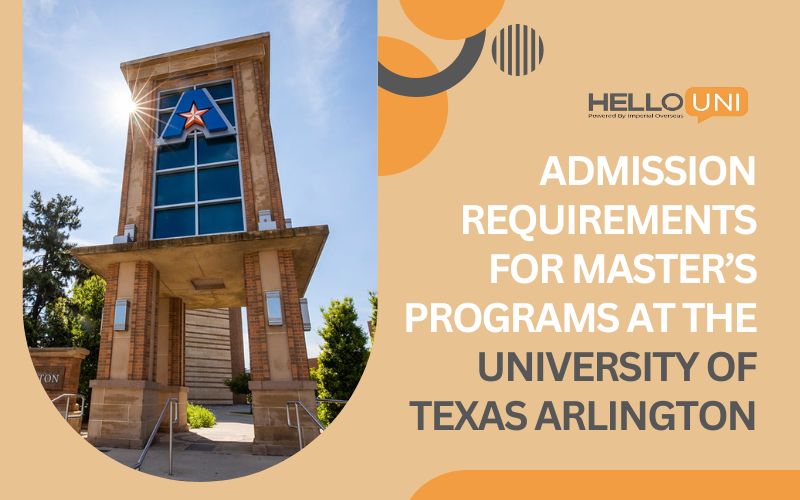The outstanding academic reputation and the dynamic student community attract many Indian students to pursue their studies in the United Kingdom. Although of high quality, studying in the UK is equally expensive.
Besides obvious expenses such as tuition fees and accommodation, there are some other hidden costs at one point in time that may stretch your budget. We shall bring out these well camouflaged expenses in this blog and give you tips to manage them effectively.
Student Visa Fees
One of the very first hidden costs that students come across is for a student visa. Every student is required to obtain a visa for studying in the UK, and this can add another dimension of expense to the application process.
- Study student visa for a short period: ₹8,000 for six months and ₹15,000 for 11 months.
- Tier 4 Student Visa (General): ₹28,500
- Tier 4 Student (Child) Visa: ₹28,500
These fees can add a significant amount to your overall budget, making it crucial to plan for this expense in advance.
Immigration Health Surcharge
The UK is renowned for its National Health Service (NHS), which provides top-notch healthcare. To access these facilities, however, an immigration health surcharge is required of international students. This usually comes out to ₹38,000 to ₹40,000 per annum.
This gives a student free medical care from most NHS health centers and dental care at a reduced price. It is another compulsory cost, often outside the initial budget estimations.
Entrance Exams
Many universities in the United Kingdom require international students to take standardized tests as part of the application process. Sometimes, fees for these exams can be a lot. For example:
GRE: ₹15,912
GMAT: ₹ 25,064
IELTS UKVI: ₹ 17,250 (varies with regards to different Indian states)
TOEFL: ₹14,200
These are the costs that come unexpected to most students who were already tackling with very high charges on application and tuition fees.
University Application Fees
Sometimes, additional fees have to be paid for applying to a university in the UK. All undergraduate applications are made through the UCAS application website and entail a small fee for attending. Postgraduate applications are sent directly to the university website of choice.
In all, the application fees alone might shoot up to INR 1,500 to INR 7,500. Again, this depends on the number of universities and programs a student applies to—the fees can be really accumulated.
Cost of Living Breakdown
Beyond these hidden costs, the general cost of living in the UK can be quite high. Here’s a breakdown of some of the monthly expenses students might encounter:
| Accommodation | ₹40,000 – 60,000 |
| Food | ₹8,000 – 16,000 |
| Transportation | ₹2,000 – 3,500 |
| Household bills | ₹3,000 – 4,000 |
| Entertainment | ₹3,000 – 5,000 |
| Miscellaneous Expenses | ₹15,000 – 20,000 |
| Personal Care and Toiletries | ₹1,900 – ₹2,800 |
| Utility Bills | ₹7,500 – ₹14,000 |
| Internet and Broadband | ₹2,800 – ₹4,700 |
Note:
Healthcare Expenses: While most healthcare services are free through the NHS, there may be costs associated with prescriptions or dental treatments.
Insurance: Costs for insurance, including health insurance or contents insurance for accommodation, can vary based on individual requirements.
Socializing and Leisure Activities: Costs for socializing, such as going out with friends or participating in recreational activities, can vary depending on personal preferences and location.
Tips to Manage Costs
Even though studying in the UK may be quite expensive, there are ways to lighten the pressure of its expenditure. Some are:
- Scholarship Hunt: There are many scholarships that universities themselves or other agencies may offer. Look out for these scholarships and apply well in time.
- Cost-Effective Accommodation: Other than a regular flat, consider living in university dorms or a shared apartment; this will help save on rent and other utility bills.
- Manage Finances Wisely: Budget and keep a tab on where your money is going. This will prevent you from overspending.
- Part-time Job Opportunities: International students are permitted to have a part-time job while studying in the UK. Students can use this to support some of their living expenses while gaining work experience.
- Make full use of Student Discounts: Keep a lookout for student travel, entertainment, and retail discounts. Almost every place offers special student rates.
- Plan ahead: The earlier you make your flight and other travel reservations, the better the prices will be.
Now that these hidden costs have been revealed to the students from India, applying the above strategies to save money can help them in managing their finances in a better way toward pursuing their academic goals in the UK.
Conclusion
While the opportunities in the UK during studies are very good, the costs are overwhelming. Knowing and planning for these obvious and hidden expenses can help an Indian student in this matter.
Seeking scholarships, opting for cost-effective accommodation, managing finances wisely, and looking at part-time job opportunities may be the factors which would combine to give academic success without overwhelming financial stress.
The answer to all your international academic dreams is HelloUni. Our expert guidance helps you to deal with hidden costs and secure the best scholarships. Join us today and make your study abroad journey seamless and affordable. Visit HelloUni now to get started!
FAQs
What are the benefits of studying in the UK instead of India?
International students who relocate to the UK have the chance to experience other cultures as well. This is one of the main advantages that leads students to decide to study in the UK. Getting in touch with people from different cultures and learning about them fascinates international students.
How much does an Indian student earn in the UK while studying?
For students aged between 18 and 20, the national minimum wage is at £7.49 per hour. Those aged 21 and over can earn £10.18 per hour in the UK.
Does a UK degree have value in India?
Regardless of the location you pursue your degree from, if you are able to prove the credits earned during your studies, it will definitely hold an equivalence internationally and hence UK degrees would be accepted in India and vice versa.
Do Indian students pay tax in the UK?
Under UK domestic law, students have no special status in the UK tax system. So, generally, students are liable to UK tax and National Insurance contributions in the same way as other UK taxpayers.







